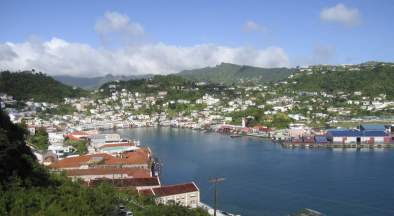The HLS follows the meeting of the Caribbean Community’s (CARICOM) Council on Trade and Economic Development (COTED) in September where water was the center of attention by Heads of States and Ministers of Water.
Faced with water shortages, utility companies have instituted water rationing and restrictions including the application of fines for misuse of water; water trucking to communities faced with critical shortages; and diversion of water from the agriculture sector for domestic use.
Far reaching implications of the water shortage included concerns for public health and welfare with the increase in cases of water-borne diseases especially among children due to consumption of unsafe sources of water; social unrest as conflict over water increased in depressed communities; increased mental and physical stress; and increase in poverty due to the decline in economic activity. These experiences brought home the need for Water Management Plans to be put in place as a matter of urgency for those agencies which previously did not have such plans. Climate Change impact and the expected increase in extreme weather events resulting in hurricanes and flooding were also topics discussed and it was noted that the cumulative cost of disaster events in the Caribbean is set to amounts to approximately 11% of total regional Gross Domestic Product (GDP) by 2018 according to World Bank projections.
The High Level Session (HLS) Ministerial Forum, hosted by the Honourable Joseph Gilbert, Minister of Works, Physical Development and Public Utilities of Grenada, is a platform for the Caribbean Ministers with responsibility for Water to discuss water resources management issues in the region. Building on the lessons learnt by the region they focused this year on the need for plans to be put in place to safeguard against future drought events and other crisis which pose a threat to water security for the people of the Caribbean, specifically the recent drought crisis in the region. This year’s theme was ‘Water Crisis in the Caribbean: The Integrated Water Resources Management (IWRM) Response.
The HLS identified specific needs for improving water management in the Caribbean at the national and regional level:
• Precipitation monitoring and data gathering for forecasting
• Water Resources Assessments
• Ground water monitoring
• Planning for water within urban development
• Legislative reform/ revision
• Institutional arrangements for water management
• Demand Management and Public Awareness
• Stakeholder Involvement
• Multi-sectoral approaches
• Alternative sources of water (e.g. rain water harvesting, desalination, wastewater harnessing)
• Political Leadership and Will
The issues discussed at the HLS clearly pointed to the urgent need for Integrated Water Resources Management (IWRM) Policy and Planning in the region, the coordinated development and management of water, land and related resources, which takes into account the effects of each use on the others, and attempts to achieve the overall economic and social goals of a country/region, including the achievement of sustainable development, without compromising the environment. GWP Caribbean will continue to provide technical assistance for the achievement of water security in the region.

